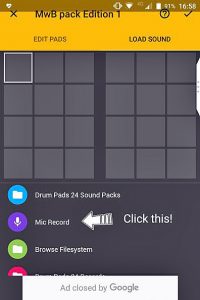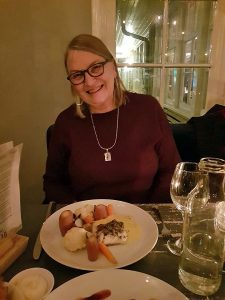Welcome Notes Training – Report from Musicians without Borders
 The mission of Musicians without Borders is to use music to connect communities, bridge divides, and heal the wounds of war and conflict. These two weekends of training were about applying the value and principles of Musicians without Borders to musical activities within refugee communities. The training was originally devised in response to the influx of refugees to the Netherlands in the beginning of the war in Syria. For quite some time, refugee camps looked to be growing with no plan to find places for the people to go.
The mission of Musicians without Borders is to use music to connect communities, bridge divides, and heal the wounds of war and conflict. These two weekends of training were about applying the value and principles of Musicians without Borders to musical activities within refugee communities. The training was originally devised in response to the influx of refugees to the Netherlands in the beginning of the war in Syria. For quite some time, refugee camps looked to be growing with no plan to find places for the people to go.
Musicians without Borders felt they had a duty of care to provide training for Dutch musicians and activists who wished to help in these contexts. Since this time, the refugee camps have been dispersed with their populations distributed throughout Europe. The need for this sort of training remains, however, even if now the scope and participants have become more international.
The goal of the training is aligned with this mission and Musicians without Borders’ core values and principles of work, which are listed here:
Core Values
- We use music as a tool for bridging divides and promoting social change.
- We strive to increase empathy among all participants.
- We strive to cultivate a culture of nonviolence.
Principles of work
- SAFETY: The group is a safe place for everyone.
- EQUALITY: Everyone is welcome, everyone is honored, everyone can make music.
- INCLUSION: Music provides a neutral space, where people from different backgrounds can meet through their common love of and engagement in music-making and are not defined by their differences.
- CREATIVITY: Using the creativity of individuals and as a group we can experience the connecting power of (shared) ownership in music.
- QUALITY: We strive for a high quality of music-making, as this leads to a higher sense of connection and empathy.
 The weekends consisted largely of participatory music workshops. There was little talking at the beginning of any activity, but there was always time for reflection afterwards. This usually took the form of a musical game and then the convener would ask how we felt, and how a traumatised person might feel playing this sort of game. In this way, we began to build a repertoire of activities that stayed true to the Musicians without Borders Principles of Work, always keeping an eye on how this would apply in refugee contexts.
The weekends consisted largely of participatory music workshops. There was little talking at the beginning of any activity, but there was always time for reflection afterwards. This usually took the form of a musical game and then the convener would ask how we felt, and how a traumatised person might feel playing this sort of game. In this way, we began to build a repertoire of activities that stayed true to the Musicians without Borders Principles of Work, always keeping an eye on how this would apply in refugee contexts.
For example, early on we introduced ourselves to each other using a musical game that involved singing our names or rapping them in a shared and simple musical game. This was easy enough for the participants, but how comfortable would refugees be with this game? What if uttering their name could bring animosity from others as it would highlight their culture? For many, this could be an issue. It was agreed that it did not have to be a personal name, but could be any name or word they wished to be identified by for the purposes of the game. Of course, it was also highlighted that there were other potential problems with this approach such as language. What if they could not understand the instructions? It was demonstrated that this could be overcome with demonstrations and lots of eye contact and body language.
 The games and activities grew from there upon these principles, becoming more involved and complex as they went on. The participants were increasingly expected to contribute and develop their own activities based on these principles and experiences. And we tested them out on the group. Other examples of activities included:
The games and activities grew from there upon these principles, becoming more involved and complex as they went on. The participants were increasingly expected to contribute and develop their own activities based on these principles and experiences. And we tested them out on the group. Other examples of activities included:
– Singing or playing rhythms in rounds
– Creating soundscapes with voices and other noise-making objects
– Mirroring games
The goals of these activities were to create safe and inclusive environments in which to explore creativity; to explore the value of movement in relation to safety and empathy; creating opportunities for participants to interact creatively with each other.

Other activities included working with smartphone apps to engage teenagers.


It was not solely workshops and activities, however, and there were a few important and inspiring seminars delivered. One was from Darren Abrahams, the co-founder of Crisis Classroom, an educational organisation for refugees. Darren delivered a seminar on trauma and self-care within refugee settings. This involved an Australian-developed model of trauma and responses called the MATES system, which seemed very useful. The effectiveness of the model was demonstrated with a further workshop.
 Finally, Laura Hassler, the director of Musicians without Borders, gave a very passionate speech about inspiration for the training. She referred to the dominant discourse about the “refugee crisis” that exists, especially in the west. She pointed out that this was not really a refugee crisis but a “war crisis” since refugees are a natural occurrence during wartime. Trying to fix the refugee problem is impossible while wars continue around the world as they currently do. She was inspired by eco-philosopher and Buddhist scholar Joanna Macy who coined the term The Great Turning. This is a global response to the dominant discourse of global constant growth at the expense of all else. As such, she believes that “refugee” is an experience, not an identity and that music is a universal human capacity. Therefore, music has the potential to touch upon the refugee experience and enable practitioners to become allies, not rescuers, and help to provide safe and empathetic groups that have the potential to grow into communities of care.
Finally, Laura Hassler, the director of Musicians without Borders, gave a very passionate speech about inspiration for the training. She referred to the dominant discourse about the “refugee crisis” that exists, especially in the west. She pointed out that this was not really a refugee crisis but a “war crisis” since refugees are a natural occurrence during wartime. Trying to fix the refugee problem is impossible while wars continue around the world as they currently do. She was inspired by eco-philosopher and Buddhist scholar Joanna Macy who coined the term The Great Turning. This is a global response to the dominant discourse of global constant growth at the expense of all else. As such, she believes that “refugee” is an experience, not an identity and that music is a universal human capacity. Therefore, music has the potential to touch upon the refugee experience and enable practitioners to become allies, not rescuers, and help to provide safe and empathetic groups that have the potential to grow into communities of care.
There certainly was a lot to take in, and the trainers have provided me with some of the resources that they used during the sessions. This has already proven valuable as I have begun to share these resources with music therapists at Nordoff Robbins in London who are engaged with refugee contexts. I believe there is potential to share these experiences, skills and resources with Min-On as well, perhaps enabling the organisation to become a space for initiating a national Japanese conversation about music and refugees.




